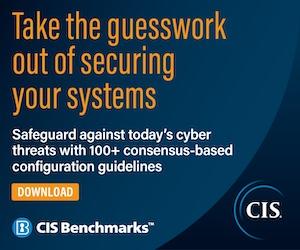In today’s rapidly evolving digital landscape, cybersecurity threats continue to escalate in both sophistication and scale. This week’s CISO Series spotlights critical developments shaking the industry: Akira’s discovery of a SonicWall zero-day vulnerability, significant operational setbacks within the UK’s Legal-Aid system due to cyber disruptions, and a targeted 5G network attack in Luxembourg that raises serious national security concerns. As organizations worldwide grapple with these emerging challenges, staying informed on the latest breaches and defensive strategies has never been more crucial.
Akira Exploits SonicWall Zero-Day Vulnerability Raising Enterprise Security Alarms
Security researchers have uncovered a sophisticated exploitation campaign targeting a previously unknown vulnerability in SonicWall’s secure VPN appliances. The flaw allows the threat actor, identified as Akira, to bypass authentication controls, potentially granting unauthorised remote access to enterprise networks. Early indicators suggest that the attack is being leveraged to deploy advanced persistent threats (APTs), escalating concerns among cybersecurity teams worldwide.
Organisations using SonicWall products are urged to implement immediate mitigation measures while waiting for official patches. Key recommendations include:
- Restricting VPN access to trusted IP addresses only
- Enabling multi-factor authentication (MFA) across all remote access points
- Monitoring unusual login attempts and network traffic anomalies vigorously
- Applying the latest SonicWall firmware updates as soon as they become available
| Aspect | Impact | Urgency |
|---|---|---|
| Access Control Bypass | High risk of network compromise | Critical |
| Data Exposure | Potential leakage of sensitive information | High |
| Patch Availability | Pending official release | Immediate mitigation required |
UK Legal-Aid Services Compromised by Cyberattacks Exposing Critical Data Weaknesses
Recent cyberattacks have struck the UK legal-aid sector, exposing significant vulnerabilities in its data security infrastructure. Attackers exploited outdated systems and weak access controls to infiltrate sensitive databases containing personal information of legal aid applicants. The breach has raised alarm among cybersecurity experts who warn that critical services relied upon by the most vulnerable citizens are now at risk of prolonged disruption and data misuse. As investigations continue, it’s clear that the compromised networks lacked essential safeguards such as multi-factor authentication and real-time intrusion detection mechanisms.
The fallout has prompted urgent calls for a rapid upgrade of cybersecurity protocols across public sector services. Key weaknesses identified include:
- Insufficient encryption of stored and transmitted data
- Delayed patch management allowing zero-day exploits
- Limited staff training on phishing and social engineering threats
- Fragmented IT infrastructure leading to inconsistent security policies
Below is a summary of reported vulnerabilities and their potential impact within the UK legal-aid framework:
| Vulnerability | Impact | Suggested Mitigation |
|---|---|---|
| Legacy Systems | Easy exploitation by attackers | System upgrades and end-of-life policy enforcement |
| Weak Access Controls | Unauthorized data access | Implementation of multi-factor authentication |
| Unpatched Software | Exposure to zero-day exploits | Regular, automated patch deployment |
| Low Cyber Awareness | Increased phishing success | Mandatory cybersecurity training programs |
Luxembourg Faces Sophisticated 5G Network Breach Prompting Urgent Infrastructure Overhaul Recommendations
Luxembourg’s 5G infrastructure suffered a highly sophisticated breach that has sent shockwaves through European cybersecurity circles. Attackers exploited multiple vulnerabilities within the network’s core components, gaining unauthorized access that threatened critical communications and data integrity. The complexity of the attack indicated the use of advanced persistent threat (APT) tactics, targeting supply chain weaknesses and leveraging zero-day exploits. Authorities confirmed that while immediate damage was contained, the potential for longer-term espionage and disruption remains a significant concern.
In response, cybersecurity experts have issued urgent recommendations to overhaul Luxembourg’s 5G network defenses, emphasizing the need for:
- Enhanced real-time monitoring systems to detect and mitigate intrusions swiftly.
- Regular firmware and software patching schedules aligned with global threat intelligence.
- Zero-trust architecture adoption to limit lateral movement within the network.
- Comprehensive workforce training focusing on cyber hygiene and incident response.
A recent internal audit tabled below illustrates the current vulnerabilities identified and the priority levels assigned for remediation:
| Vulnerability | Description | Priority |
|---|---|---|
| Firmware Backdoor | Undocumented access ports in base station firmware | Critical |
| Supply Chain Exposure | Third-party component tampering risks | High |
| Insufficient Encryption | Legacy protocols vulnerable to interception | Medium |
| Access Control Flaws | Weak authentication on network management tools | High |
Final Thoughts
As cyber threats continue to evolve at a relentless pace, the latest developments-from the exploitation of SonicWall zero-day vulnerabilities by Akira to the troubling impacts on the UK’s legal-aid infrastructure and sophisticated 5G attacks in Luxembourg-highlight the urgent need for vigilant, adaptive security measures. CISOs and cybersecurity professionals must stay informed and proactive to protect critical systems from increasingly complex attacks. Staying ahead requires not only robust technical defenses but also a comprehensive understanding of the shifting threat landscape shaping today’s digital frontlines.
















